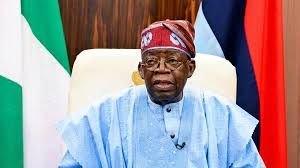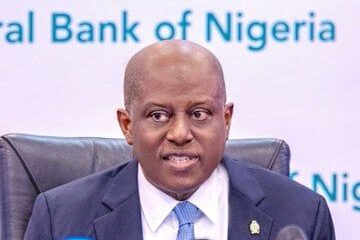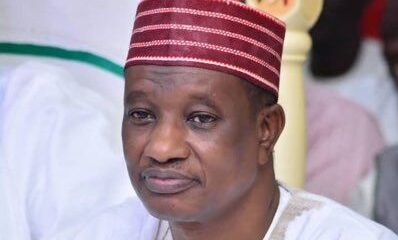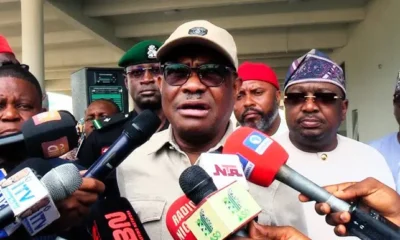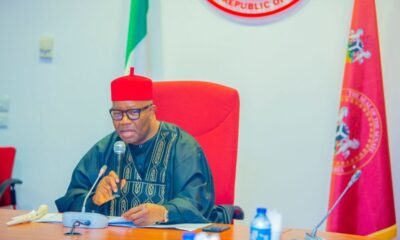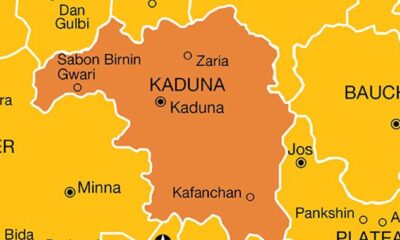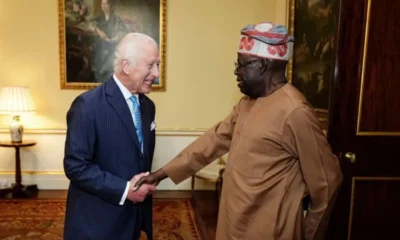African News
South Africa’s elites despair as murder, unemployment slide back to 1994 levels
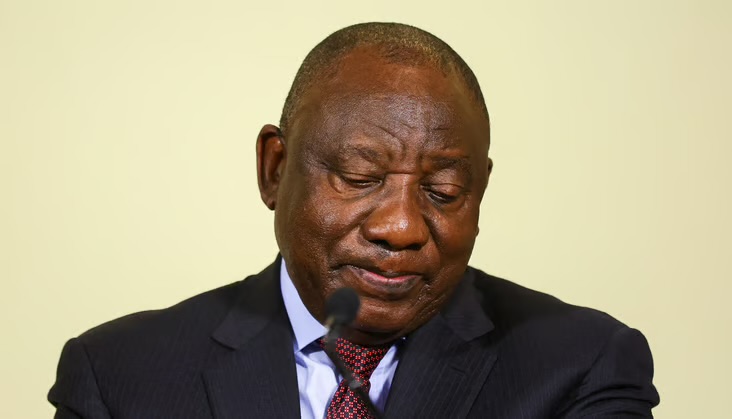
Despair is not an option, former president Kgalema Motlanthe told attendees at the end of his foundation’s weekend Inclusive Growth Forum, held at the foot of the scenic Drakensberg range, more than five hours’ drive from Johannesburg.
Business and political leaders, as well as analysts and academics took to the podium one by one to express a sense of disillusionment about the direction in which the country is heading, seven years after President Cyril Ramaphosa replaced Jacob Zuma and promised to root out large-scale corruption.
‘It is a problem we can fix’
The murder rate in South Africa has slid back to what it was “in 1994, during the turmoil that brought us our democracy”, said retired Justice Edwin Cameron, currently serving as inspecting judge for Correctional Services.
Following the transition to democracy the murder rate systematically dropped to a low in 2011, but currently it stands at 27,000 murders a year.
He offered some hope. “It is a problem we can fix,” Cameron said. “We, the elite, created the problem.”
He said this was by thinking that mandatory minimum sentences would be the silver bullet to reduce violent crime, whereas it was about the whole criminal justice system working better to ensure all criminals are brought to book.
Police minister Firoz Cachalia, however, said systemic corruption and the infiltration of South Africa’s “institutions of political authority, bureaucracies and economic sectors” now represent a threat to the country’s national security.
“This isn’t only crime. These phenomena cannot be understood or remedied simply as consisting of individual criminal acts,” he said, adding that South Africa’s anti-corruption institutions had to be strengthened.
“It’s a long-term project, for which there are no quick fixes.”
He said despite the police’s problems, it still had capable leadership across all ranks as well as a national footprint.
The alleged infiltration of the police by criminal cartels has been under the spotlight after KwaZulu-Natal’s police commissioner, General Nhlanhla Mkhwanazi, alleged that the police minister at the time, Senzo Mchunu, interfered with the police’s work.
Cachalia said the judicial and parliamentary inquiries into these allegation “will cast a light in an area of darkness” and will help “reset the agenda for safety and security”.
He told The Africa Report it was also a sign that South Africa’s institutions were still working.
Unemployment blues
There has also been backsliding in the unemployment figures, according to strategist, economist and academic Miriam Altman.
The unemployment rate is higher now than in 1990, when experts started looking for solutions and when unemployment under the narrow definition was 30%, she said.
Altman was one of the experts roped in by government in the early 1990s to look at ways to boost employment.
“[Unemployment] fell to about 22% until about 2008, and now it’s higher than when we started,” she said.
The unemployment rate, narrowly defined, is currently around 33%, and under the expanded definition which includes discouraged work seekers, the rate is 41%.
Altman said it was previously possible to reduce unemployment in a short space of time, but “somehow it bounces back”, possibly because of failings such as a lack of economic developmentand weak public transport systems in the longer term.
South Africa is “just at a point where we have to think about how we go about stuff, because we just keep seeing it go in circles, which is what stagnation is.
“We’re not standing still. We move around a lot and there’s loads and loads of activity, but we’re not moving forward.”
She said strengthened institutions are key in uncertain times such as the current times.
Lack of strong political leadership
Many of these problems could be solved by strong political leadership.
MTN non-executive chairman and special envoy to the US, Mcebisi Jonas, was scathing about the lack of such in government as well as in the African National Congress (ANC), of which he remains a member.
He said the Government of National Unity (GNU) – the governing coalition between a number of parties following last year’s general elections and headed by Ramaphosa – neither united South Africans nor improved governance as was hoped.
“Instead, national rancour has intensified,” he said. “[T]he GNU appears to be only a fig leaf for the absence of central authority in government.”
He also criticised his own party, where he previously served in leadership positions and as the deputy minister of finance.
“[P]art of the reason that the GNU cannot agree on a way forward is that the ANC is divided and disjointed.
“The ANC is not providing credible leadership on critical issues of social and economic policy, nor has it demonstrated any visible path to execution.
“In the face of geopolitical volatility, it has not been able to offer a coherent, credible or viable response.”
Economic recovery
His criticism comes a week after Ramaphosa announced the ANC’s latest economic recovery programme, and as trade, industry and competition minister Parks Tau said South Africa was “close to” a deal on tariffs with the US.
Jonas himself has been doing his work as special envoy from outside the US after an investigation by the US Department of Justice (DoJ).
The DoJ investigated questionable dealings by MTNin Iran when it established its business there in 2006, which has reportedly prevented him from getting a visa.
South Africa has not replaced its ambassador, Ebrahim Rasool, after he was expelled from Washington in March.
Jonas said there were “global forces” at play, which involved apartheid nostalgia on the one hand and African populism on the other.
These were aligned behind an agenda of “driving wedges into South African society” and, like in some other African countries of late, “we might see a future for South Africa where authoritarianism and anti-constitutionalism are the prominent ideological brands”.
He added: “The most pervasive symptom of this phenomenon is the destruction of our institutions — the steady breakdown in the government-run departments that are meant to serve all of us.”
(The Africa Report)
-

 News44 minutes ago
News44 minutes agoTinubu’s ambassador-designates in limbo
-

 Business43 minutes ago
Business43 minutes agoCBN raises alarm over Nigeria fintech’s foreign reliance
-

 Politics42 minutes ago
Politics42 minutes agoWe’ve no plans to impeach dep gov — Kano Assembly
-

 Opinion56 minutes ago
Opinion56 minutes agoLeft behind but not forgotten
-

 Politics54 minutes ago
Politics54 minutes agoWe Don’t Need Gov’s Support To Deliver Rivers For Tinubu – Wike
-

 Politics40 minutes ago
Politics40 minutes agoElectoral Act: Amendment yet to be concluded – Akpabio tells critics
-

 News38 minutes ago
News38 minutes agoKaduna Residents Protest Displacement Of 18 Villages By Bandits, Closure Of 13 Basic Schools
-

 News36 minutes ago
News36 minutes agoTinubu Set For First UK State Visit In 37 Years



